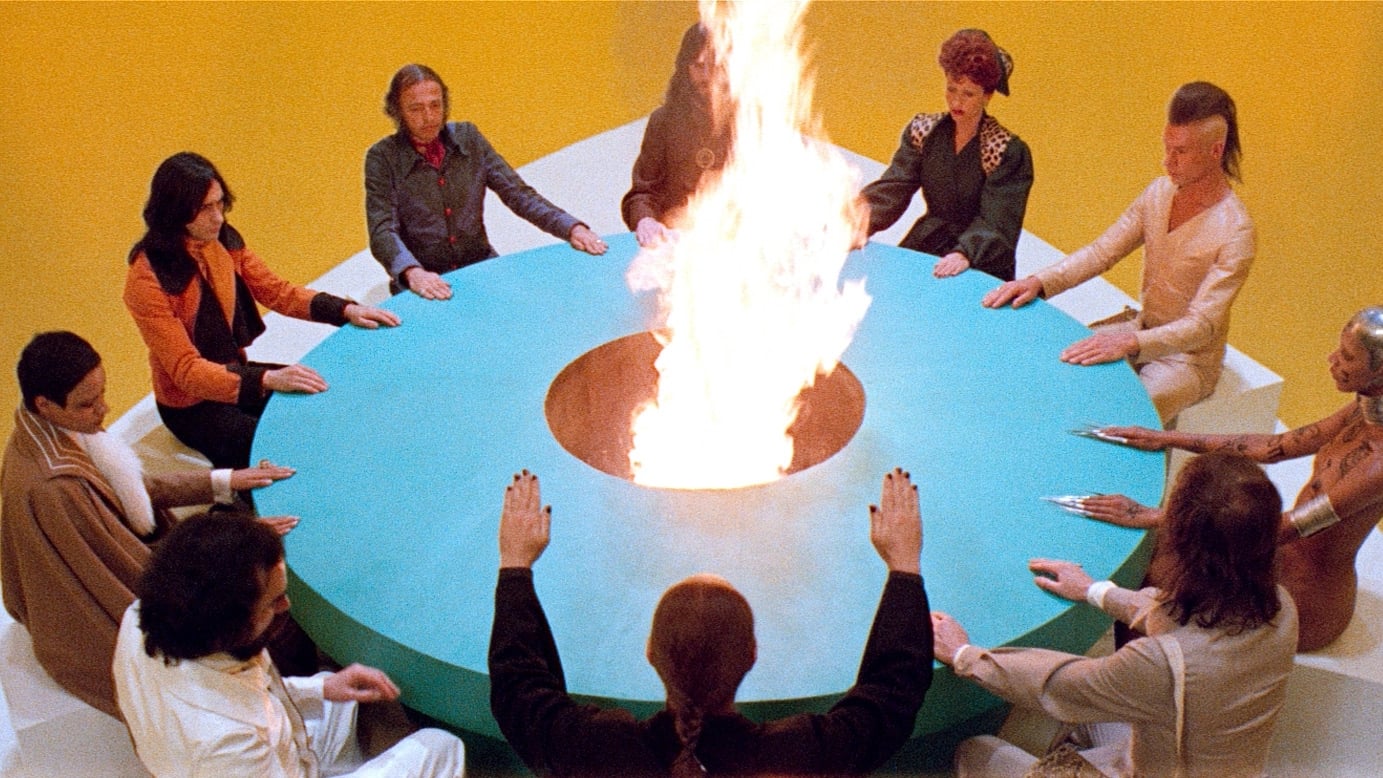Film festivals serve as vital platforms for filmmakers to showcase their work, bringing together cinephiles, industry professionals, and the general public to celebrate the art of filmmaking. Whether you’re an aspiring festival organizer or simply intrigued by the mechanics behind these cultural events, understanding the key ingredients for running a successful film festival is paramount.
This journey involves curating an eclectic selection of films, engaging with filmmakers, securing venues, and creating memorable experiences for attendees. In this discussion, we will delve into the intricacies of running a successful film festival, exploring the crucial steps and considerations that go into orchestrating a cinematic celebration that leaves a lasting impact.
Running a Successful Film Festival – How is it done?
here are 30 things you need to do to run a successful film festival, in a table form:
| Step | Description |
|---|---|
| 1 | Establish your event details. What kind of film festival do you want to create? What kind of films will you be screening? Where will the festival be held? When will it take place? |
| 2 | Get budgeting. How much money will you need to run the festival? This will depend on factors such as the number of films you will be screening, the venue, and the marketing and promotion. |
| 3 | Research your marketplace. Who is your target audience? What other film festivals are happening in your area? What are the trends in the film industry? |
| 4 | Pick your venue. The venue is the most important factor in the success of your film festival. Make sure it is large enough to accommodate your audience and has the necessary equipment and facilities. |
| 5 | Contact distributors and filmmakers. You will need to reach out to distributors and filmmakers to get the films you want to screen. This can be done through online databases, film festivals, and film markets. |
| 6 | Post your event online. Create a website and social media pages for your film festival. This is how you will reach potential attendees and filmmakers. |
| 7 | Assemble the “crew”. You will need a team of volunteers and staff to help you run the festival. This includes people to screen films, set up and tear down the venue, and manage the logistics. |
| 8 | Technical thoughts. Make sure you have the necessary technical equipment to screen the films, such as projectors, sound systems, and editing software. |
| 9 | Set up a ticketing system. This will allow you to sell tickets to the festival and track attendance. |
| 10 | Market and promote your festival. Let people know about your festival through online and offline channels. This includes social media, print ads, and word-of-mouth. |
| 11 | Create a program guide. This will list all the films that will be screened at the festival, as well as information about the filmmakers and the venue. |
| 12 | Plan for contingencies. Things don’t always go according to plan, so it’s important to have a contingency plan in place. This could include things like a backup venue or a plan for dealing with bad weather. |
| 13 | Communicate with your team. Make sure everyone on your team knows what their responsibilities are and how to contact you if they have any questions. |
| 14 | Be prepared to work hard. Running a film festival is a lot of work, but it’s also a lot of fun. Be prepared to put in the hours and make sure everything goes smoothly. |
| 15 | Have fun! Running a film festival is a great way to celebrate the art of cinema. Enjoy the process and make sure everyone has a good time. |
These are just some of the things you need to do to run a successful film festival. The specific steps involved will vary depending on the size and scope of your event. However, by following these tips, you can increase your chances of success.
Here are some additional tips:
- Start planning early. It takes time to put together a successful film festival.
- Be realistic about your budget. Don’t overextend yourself financially.
- Build a strong team. You can’t do it all yourself.
- Be flexible. Things don’t always go according to plan.
- Have fun! Running a film festival should be an enjoyable experience.
What Are Your Goals for the Film Festival?
Answer: The goals of a film festival can vary widely depending on its purpose and mission. Here are some common objectives that organizers may have:
- Showcase Diverse Cinema: Many festivals aim to celebrate diverse and innovative cinema, providing a platform for filmmakers to exhibit their work. This can include showcasing independent films, international cinema, documentaries, and experimental projects.
- Promote Filmmakers: Film festivals often seek to promote emerging talent and established filmmakers alike. They may create opportunities for networking, industry exposure, and career advancement.
- Cultural Exchange: Some festivals focus on promoting cultural exchange by featuring films from specific regions or countries. This can foster cross-cultural understanding and appreciation.
- Audience Engagement: Festivals aim to engage and entertain audiences by offering a curated selection of films that cater to various tastes and interests.
- Education and Discussion: Many festivals incorporate panel discussions, workshops, and Q&A sessions with filmmakers to provide educational and thought-provoking experiences for attendees.
- Economic Impact: Film festivals can have a significant economic impact on the host city or region. They bring in tourism, create job opportunities, and boost the local economy.
What Kind of Movies Should Be Shown?
Answer: The selection of films largely depends on the festival’s mission and target audience. Here are some considerations for choosing the types of movies to show:
- Diversity of Genres: A well-rounded festival often includes a variety of genres such as drama, comedy, documentary, science fiction, horror, and animation to appeal to a broad audience.
- Independent Films: Many festivals prioritize independent and low-budget films that may not have wide commercial distribution, giving these filmmakers a platform to showcase their work.
- International Cinema: Including films from different countries and cultures can provide a global perspective and broaden the festival’s appeal.
- New Releases and Premieres: Festivals may feature world premieres or exclusive screenings of films to generate buzz and attract attention.
- Classics and Retrospectives: Some festivals incorporate classic films or retrospectives to honor cinematic history and educate audiences about the evolution of cinema.
What Categories Should Be Included?
Answer: The categories included in a film festival can vary widely, but they should align with the festival’s goals and themes. Here are some common categories:
- Feature Films: This category typically includes full-length narrative films, often divided into subcategories like drama, comedy, and romance.
- Documentaries: A category for non-fiction films that explore real-world subjects, issues, or events.
- Short Films: These are usually films with a shorter duration, often categorized by themes or genres.
- Animation: An important category for animated films, including both short and feature-length animations.
- Experimental Films: For avant-garde and experimental works that push the boundaries of traditional filmmaking.
- Student Films: A category for films created by student filmmakers, often showcasing emerging talent.
- Local or Regional Films: To highlight films from a specific geographic area or culture.
Should the Festival Cater to a Specific Genre?
Answer: The decision to cater to a specific genre depends on the festival’s niche and target audience. Here are some considerations:
- Niche Festivals: Some festivals specialize in specific genres like horror, science fiction, or fantasy to cater to a dedicated fan base.
- Generalist Festivals: Generalist festivals showcase a wide range of genres to appeal to a broader audience and encourage diverse submissions.
- Mixed Approach: Some festivals strike a balance by featuring a mix of genres while also having special screenings or awards for specific genres.
The choice should align with the festival’s mission and objectives. Catering to a specific genre can help build a dedicated following, while a more diverse lineup can attract a broader audience.
Should the Festival Cater to a Specific Culture?
Answer: Catering to a specific culture can be a meaningful focus for a film festival. Here are considerations for such an approach:
- Cultural Festivals: Some festivals center around a specific culture, showcasing films, traditions, and stories from that culture. This can promote cross-cultural understanding and appreciation.
- International Focus: Festivals can feature films from various cultures to create a multicultural experience that celebrates diversity.
- Local Emphasis: Others may highlight the culture and history of the region where the festival is held, connecting with the local community.
The decision should align with the festival’s mission and objectives. Embracing a specific culture can create a unique and immersive experience for attendees.
How Many Film Entries Should Be Accepted?
Answer: The number of film entries accepted depends on several factors:
- Resources: Festival organizers need to consider their capacity to manage and screen submissions, including available screening time and venues.
- Quality vs. Quantity: Prioritizing quality over quantity is essential. Accepting too many films can dilute the festival’s overall quality.
- Selection Criteria: Festivals establish selection criteria to ensure that the chosen films align with their goals and themes.
- Competition: Festivals with a competitive aspect may limit the number of entries to maintain a competitive edge.
Ultimately, the ideal number of entries varies from festival to festival, but maintaining a balance that showcases a variety of films while upholding quality is key.
How Can People Enter Their Films?
Answer: To facilitate film submissions, festivals typically provide clear guidelines and entry procedures. Here’s how people can enter their films:
- Online Platforms: Many festivals use online submission platforms or their official websites to accept entries. Filmmakers can create accounts, fill out entry forms, and upload their films.
- Submission Fees: Filmmakers are often required to pay a submission fee, which helps cover administrative costs and screening expenses.
- Submission Deadlines: Festivals establish submission deadlines, including early bird, regular, and late submission periods.
- Formats: Guidelines specify the preferred film formats, resolutions, and technical requirements for submissions.
- Required Materials: Filmmakers may need to provide additional materials like synopses, director’s statements, and production stills.
- Waivers: Some festivals offer fee waivers or discounts for student filmmakers or certain categories.
What Kind of Rules and Regulations Are Needed for Entries?
Answer: Clear rules and regulations are essential for a fair and organized film festival. These rules often include:
- Eligibility Criteria: Criteria defining who can submit films, including production dates, duration limits, and content guidelines.
- Submission Fees: Details about the cost of submitting films and any available discounts or waivers.
- Formats: Technical specifications for film submissions, such as video formats and resolutions.
- Rights and Permissions: Filmmakers must confirm that they have the necessary rights and permissions for their films.
- Screening Formats: Requirements for exhibition copies, including DCP, Blu-ray, or digital files.
- Judging Process: Information about the festival’s judging criteria and selection process.
- Screening Schedule: The festival’s schedule, including screening dates, times, and venues.
- Awards and Prizes: Details about awards categories, prizes, and how winners will be determined.
Clear and transparent rules help filmmakers understand the submission process and ensure fairness throughout the festival.
What Is the Prize for Winning?
Answer: Prizes for winning films can vary widely between festivals. Here are common types of prizes:
- Cash Awards: Some festivals offer monetary prizes to winning filmmakers, which can help support their future projects.
- Trophies or Certificates: Winners may receive physical awards, certificates, or trophies recognizing their achievements.
- Distribution Deals: Certain festivals provide opportunities for winning films to secure distribution deals, increasing their reach.
- Industry Exposure: Winning can lead to increased industry recognition and networking opportunities.
- Audience Awards: Festivals may have audience choice awards based on attendee votes.
The nature and value of prizes depend on the festival’s budget, sponsors, and overall goals.
How Many Winners Will There Be?
Answer: The number of winners in a film festival can vary based on several factors:
- Categories: The festival may have multiple award categories, each with its own set of winners. Common categories include Best Film, Best Director, Best Actor/Actress, and Best Screenplay.
- Competition Level: Some festivals have highly competitive selections with only one winner per category, while others may recognize multiple films or individuals.
- Special Awards: Festivals may also present special awards or honorary mentions for outstanding contributions, innovation, or cultural significance.
- Audience Awards: Audience choice awards can have multiple winners based on audience preferences.
The festival’s structure and objectives determine the number of winners, and it often reflects the diversity and quality of the submitted films.
What Would Be On The Festival Program?
The festival program would include a variety of activities and events that cater to different interests and preferences. Some examples of things that could be included in the program are:
- Live music performances from local and international artists
- Workshops and masterclasses on various topics such as photography, filmmaking, and graphic design
- Exhibitions showcasing artwork, fashion, and other creative projects
- Panel discussions featuring industry experts and thought leaders
- Networking events and meetups for attendees to connect and build relationships
- Food and drink vendors offering a range of options to suit different tastes and dietary requirements
- Outdoor activities such as yoga classes, meditation sessions, and outdoor movie screenings
What Is The Prestige Of The Festival?
The prestige of the festival depends on several factors such as its reputation, the quality of the programming, the caliber of the speakers and performers, and the overall production value. By focusing on creating a unique and memorable experience for attendees, we can establish our festival as a premier event in the region and beyond.
What Kind Of Audience Does The Festival Attract?
We aim to attract a diverse and inclusive audience who share an interest in creativity, innovation, and self-expression. Our target audience includes students, professionals, artists, entrepreneurs, and anyone else who wants to learn, network, and be inspired. We also hope to attract visitors from neighboring cities and countries, making it a truly global event.
What Opportunities Are There For Networking?
Networking is a key aspect of any festival, and we plan to offer plenty of opportunities for attendees to connect with one another. This will include scheduled networking events, informal gatherings during mealtimes, and social media platforms where attendees can connect and engage with each other before, during, and after the festival. Additionally, we will offer mentorship programs and matchmaking services to help attendees form meaningful connections and partnerships.
How Much Money Do You Need To Raise?
To host a successful festival, we estimate that we will need to raise around $500,000. This amount will cover expenses such as venue rental, marketing, programming, logistics, and contingencies. However, we anticipate that ticket sales and sponsorships will contribute significantly to our revenue stream, allowing us to keep costs under control while still delivering a high-quality experience for attendees.
How Can You Make The Festival Run Smoothly?
To ensure that the festival runs smoothly, we will focus on the following areas:
- Developing a comprehensive operational plan that covers every aspect of the event, including scheduling, logistics, security, and emergency response procedures
- Conducting regular check-ins and progress reports with stakeholders to monitor progress and address any issues promptly
- Establishing clear communication channels between team members and departments to prevent misunderstandings and delays
- Ensuring that all necessary equipment and supplies are available and functioning properly
- Having a backup plan in place in case of unexpected disruptions or challenges
By implementing these measures, we believe that we can create a seamless and enjoyable experience for attendees, while also ensuring that the festival is financially sustainable in the long term.
Conclusion:
In conclusion, running a successful film festival is a complex yet rewarding endeavor that requires dedication, passion, and attention to detail. From selecting the right films to creating engaging experiences for attendees, there are numerous aspects to consider when organizing such an event. However, the magic of a film festival lies in its ability to bring people together, spark conversations, and provide a platform for filmmakers to share their stories with the world.
By following the principles outlined in this discussion and adapting them to your specific circumstances, you can embark on a journey to create a film festival that not only celebrates the art of filmmaking but also leaves a lasting mark on the hearts and minds of all those who attend.
So, whether you’re an aspiring festival organizer or an enthusiast eager to participate in these cinematic celebrations, remember that the success of a film festival ultimately lies in its ability to connect people through the power of film.CONSIDER READIN >>> How Long Does a Film Have to Be in a Film Festival? TO LEARN MORE.

I am a highly experienced film and media person who has a great deal to offer to like-minded individuals. Currently working on several exciting projects, I am a film and media practitioner for over a decade. I have achieved a great deal of success in my professional career.





